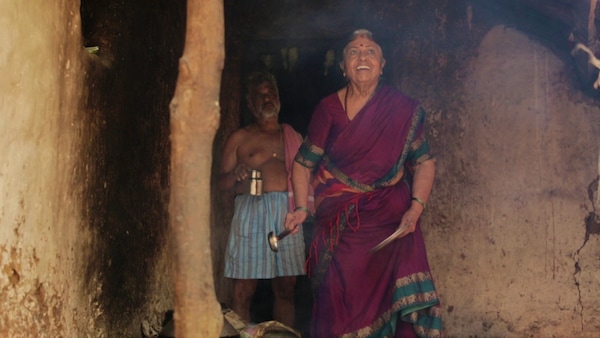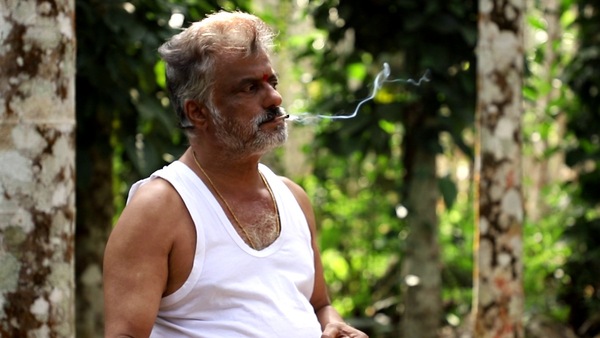Koli Taal movie review: Simple tale, set in a quaint village in Karnataka, which warms the cockles of the heart
Abhilash Shetty’s directorial debut ends its festival run at the MAMI Mumbai Film Festival this weekend.

Last Updated: 08.13 AM, Mar 05, 2022
Story: Elderly couple Mahabala Shetty (Prabhakar Kunder) and Vanaja (Radha Ramachander), live on their farm in a quaint village in Karnataka. Their every day routines revolve around the house and the farm; duties divided, with Vanaja running the household, while Mahabala oversees the farm. When their grandson Sumanth (Abhilash Shetty) announces a quick trip to meet them after almost three years, Mahabala and Vanaja are thrilled to bits and decide to treat him with Koli Taal (chicken curry) made with one of the best roosters in their possession. When the time comes to ‘sacrifice’ the rooster, though, it goes missing, presumably stolen. They could make do with a couple of hens instead, but Mahabala is determined to find the rooster and make sure his grandson gets Koli Taal.
Review: Koli Taal is one of the films in the India Spotlight section at the MAMI Mumbai Film Festival and available to stream for free on its official site until tomorrow (March 6, 2022), which will conclude Abhilash Shetty’s directorial debut’s festival run. The film is set in a quaint village in the Western Ghats region of Karnataka and captures the lifestyle, spoken language, etc., of the area, as told through a rather simple story. The rooster meant for a special chicken curry has gone missing and it has to be found, come what may. Given that the couple, their grandson and three workers were the only ones at the ‘crime scene’, suspicion falls squarely on the outsiders. But did they do it?

When I watched the film, the first thing that struck me is that if you’ve been city-bred, or not lived in an era without technological advancements, the setting of Koli Taal may not be appealing. A village where mobile phone reception is still sketchy, but the mobile phone can be hung outside the house to get the signal (while safely nestled in plastic bag to protect it from the elements) without fear of it being stolen. A house where the courtyard gets a splashing of cow dung in the morning, chicken roam freely and nestle on treetops at night. Most of the cooking gets done on a wood-burning stove outside the main kitchen, and the LPG stove getting some action only after dark. Running the household is entirely Vanaja’s responsibility, Mahabala will not even lift a finger to get himself a glass of water. I could go on with how Abhilash has captured typical village lifestyle.
This is the beauty of the film, but, as I said, also why it is not for everyone. The reason I loved it is because three decades ago, I spent my adolescent years in a semi-farm setting with cows, goats, chicken, dogs, cats and a lot of greenery. While the more religious traditions depicted in the film, like the swearing on a coconut, sacrificial killing of a rooster, etc., were alien to me, the basic setting not only transported me to my younger days, but was also a grim reminder of what I was missing out on in the pursuit of a ‘better life’ in the concrete jungle that is Bengaluru.
Verdict: Koli Taal is not exceptional, and could have, of course, done with some refinement as far as acting goes, with Prabhakar Kunder as Mahabala the best of the lot. But it is a good first attempt. If you do watch it, do so with an open mind, without expectations, and soak in the ‘nativity’ that the film captures. It’s also just under one-and-half hours long, so enjoy the ride.
Subscribe to our newsletter for top content, delivered fast.

